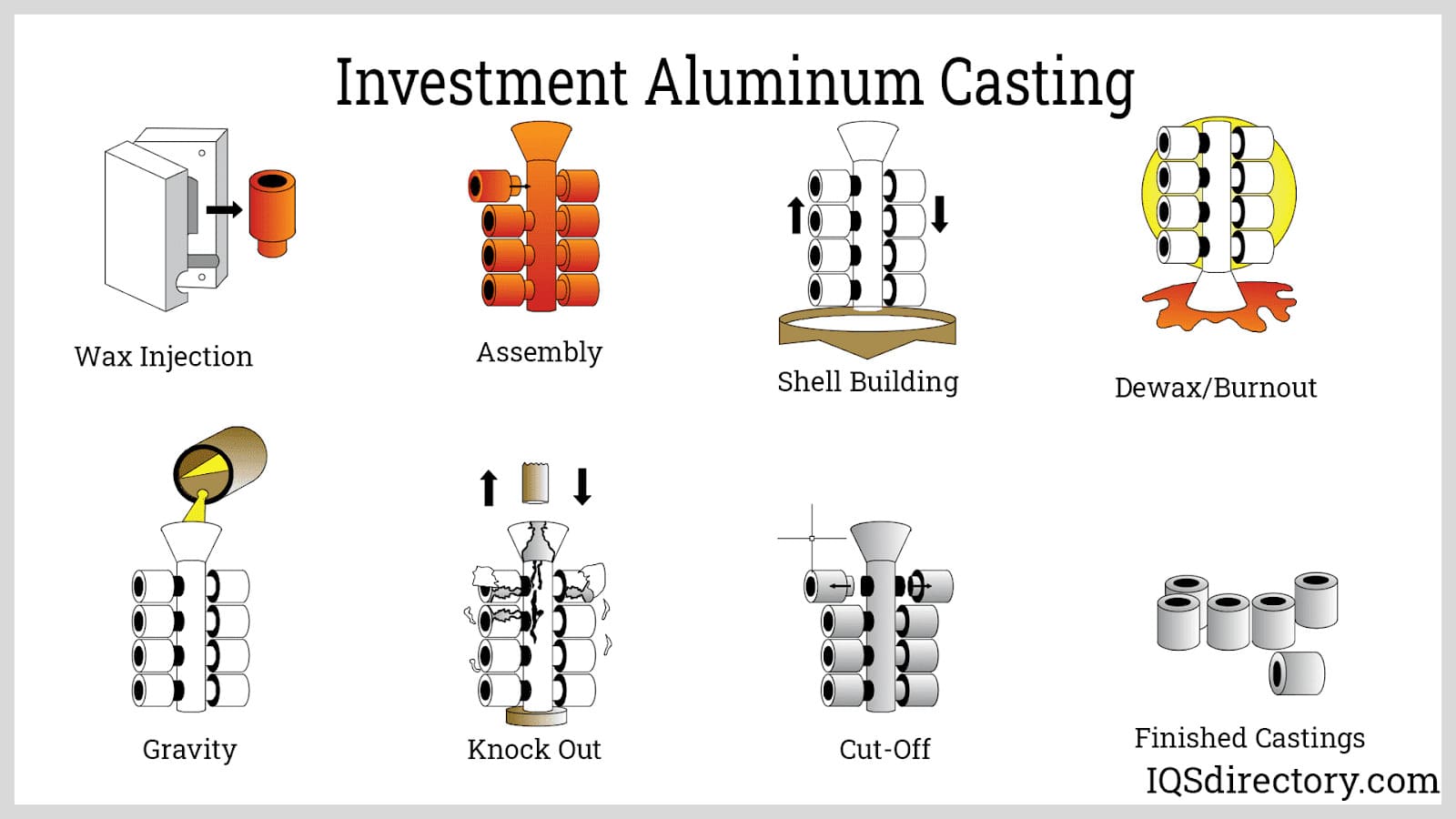Stahl Specialty Company - Truths
Stahl Specialty Company - Truths
Blog Article
Indicators on Stahl Specialty Company You Should Know
Table of ContentsWhat Does Stahl Specialty Company Mean?The Ultimate Guide To Stahl Specialty CompanyHow Stahl Specialty Company can Save You Time, Stress, and Money.All About Stahl Specialty CompanyThe Best Guide To Stahl Specialty Company
The subtle distinction lies in the chemical content. Chemical Contrast of Cast Light weight aluminum Alloys Silicon advertises castability by minimizing the alloy's melting temperature level and improving fluidness during spreading. It plays a vital function in enabling elaborate mold and mildews to be filled up precisely. Additionally, silicon adds to the alloy's toughness and use resistance, making it valuable in applications where sturdiness is vital, such as automobile parts and engine elements.It also boosts the machinability of the alloy, making it less complicated to process into completed products. This way, iron adds to the overall workability of light weight aluminum alloys. Copper raises electrical conductivity, making it helpful in electrical applications. It likewise boosts rust resistance and contributes to the alloy's overall stamina.
Manganese adds to the strength of aluminum alloys and improves workability. It is generally made use of in functioned aluminum products like sheets, extrusions, and profiles. The visibility of manganese aids in the alloy's formability and resistance to breaking throughout construction processes. Magnesium is a light-weight component that gives strength and effect resistance to light weight aluminum alloys.
Zinc improves the castability of light weight aluminum alloys and aids regulate the solidification process throughout casting. It improves the alloy's strength and solidity.
Little Known Questions About Stahl Specialty Company.
Due to the fact that aluminum-silicon alloys have good spreading properties, high gas buildings, basic procedures, and exceptional rust resistance, aluminum-silicon alloys are most typically used in the die-casting industry at home and abroad. At the same time, aluminum-silicon alloys are likewise fairly early and extensively identified alloys created and used in die-casting. After constant research and renovation, the majority of the present global mainstream aluminum-silicon alloys have actually been completed and are nothing even more than A356, A360, A380, ADC12, B390, and A413.
The primary thermal conductivity, tensile toughness, yield strength, and elongation differ. Select suitable raw products according to the performance of the target product produced. Amongst the above alloys, A356 has the highest possible thermal conductivity, and A380 and ADC12 have the most affordable. The tensile limit is the contrary. A360 has the most effective return stamina and the greatest prolongation rate.

The Single Strategy To Use For Stahl Specialty Company
In accuracy spreading, 6063 is well-suited for applications where intricate geometries and top notch surface finishes are paramount. Examples consist of telecommunication rooms, where the alloy's superior formability enables for smooth and visually pleasing styles while maintaining structural stability. Likewise, in the Illumination Solutions sector, precision-cast 6063 parts produce elegant and reliable lights fixtures that require complex shapes and great thermal performance.
(https://myanimelist.net/profile/stahlspecialc)
It leads to a better surface area finish and much better rust resistance in A360. Furthermore, the A360 exhibits exceptional elongation, making it ideal for complicated and thin-walled parts. In precision casting applications, A360 is fit for sectors such as Consumer Electronic Devices, Telecommunication, and Power Devices. aluminum foundry. Its improved fluidity enables for complex, high-precision elements like mobile phone coverings and interaction device housings.

In accuracy spreading, aluminum 413 beams in the Customer Electronics and Power Tools industries. It's typically utilized to craft detailed components like smart device housings, camera bodies, and power tool casings. Its precision is amazing, with tight resistances as much as 0.01 mm, making sure flawless item assembly. This alloy's premium corrosion resistance makes it an outstanding option for outdoor applications, guaranteeing durable, durable products in the discussed markets.
An Unbiased View of Stahl Specialty Company
The aluminum alloy you select will significantly affect both the spreading procedure and the residential or commercial properties of the last product. Since of this, you need to make your decision very carefully and take an informed strategy.
Determining the most appropriate aluminum alloy for your application will mean considering a broad range of attributes. The first classification addresses alloy qualities that affect the production process.
The alloy you select for die spreading straight affects several facets of the spreading process, like how very easy the alloy is to collaborate with and if it is vulnerable to casting problems. Warm splitting, additionally understood as solidification splitting, is a typical die spreading problem for light weight aluminum alloys that can cause inner or surface-level tears or cracks.
The Facts About Stahl Specialty Company Revealed
Certain aluminum alloys are a lot more susceptible to hot fracturing than others, and your selection should consider this. Casting Foundry. It can harm both the actors and the die, so you should look for alloys with high anti-soldering residential properties.
Corrosion resistance, which is currently a remarkable feature of aluminum, can vary substantially from alloy to alloy and is a necessary characteristic to consider depending on the environmental problems your product will certainly be exposed to. Put on resistance is another residential property frequently sought in light weight aluminum items and can differentiate some alloys.
Report this page